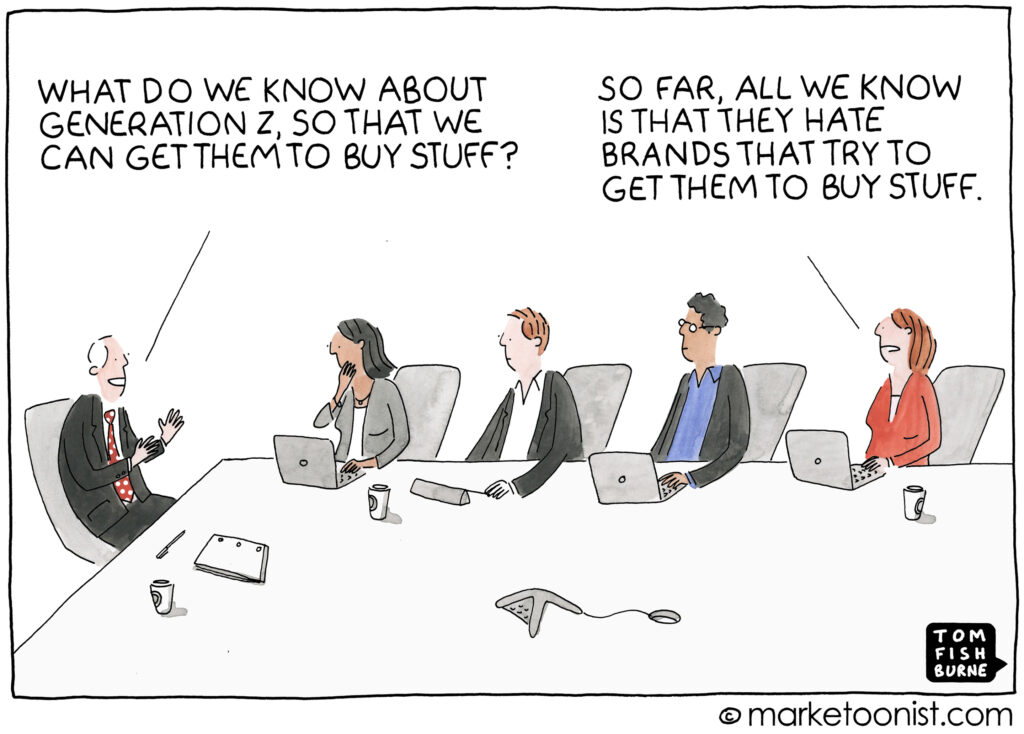The marketing world never ceases to amaze me.
…selling one-size-fits-all short-cuts…
…conditioning consumers that patience and branding are for suckers…
…that short-term thinking and immediacy are the new normal for brands.
Silver bullets don’t exist in marketing.
Better to think in terms of butterflies.
The butterfly develops through a process called metamorphosis, which involves transformational change through different stages.
To become a butterfly, you must start as a caterpillar. Depending on the species, the pupa, or transition stage, can last from a few weeks, a month, or even a few years.
It takes patience to become a butterfly, but definitely worth the wait.
Butterflies are remarkable in every aspect – they get your attention, as you ponder their artistic beauty and almost magical grace.
Great marketing is like that too.
Quibi
To Quibi or not to Quibi, that is the question.
After launching in April of 2020 with almost $2 Billion in funding and an all-star cast of founders is shutting down.
Wow, that was fast.
There is a golden lesson to be learned from this story for marketers and brands.
Quibi, a short-form video streaming platform geared for mobile devices was
founded in 2018 by Jeffrey Katzenberg and Meg Whitman…
… “Quibi was founded to create the next generation of storytelling,” Katzenberg claimed in an early press release.
It turns out that was an audacious, bold, and brazen statement.
Despite the massive funding, A-List Founder and top-notch CEO, Quibi couldn’t overcome this one small but vastly important thing – its foundation assumption was incorrect, and therefore all the others they made were incorrect.
All the money and talent in the world can’t fix a thing when your core assumption is flawed and incorrect.
“TV in your pocket” and “content on the go” missed the target…completely.
It didn’t pass the “who cares test,” from its very first assumption.
It didn’t solve any problem, instead, it invented its own “solution.”
And nobody cared.
From the next big thing to the next big bust, the story of Quibi is a great lesson for all brands…it’s not what you have or care about that is important, it’s what the consumer wants and needs that rule the day.
Reverse engineer from their point of view, perspective, desires, hopes and fears, and then maybe they will start to pay attention and care.
In the end, it’s perfectly fine to be wrong, not find a market, and fail miserably.
It’s the absolute best way to learn, and most importantly instill humility in your future “got to markets.”
But before you begin, ask yourself “what’s in it for them?” – that’s a better place to start.
New Coke
Another infamous marketing disaster made by Coca-Cola also started with a bad assumption.
In the spring of 1985, Coca-Cola decided that after 100 years of successful Coke soft drink sales, it was time to change its winning formula.
For context, yes, the company was in the midst of the “cola wars” against Pepsi and was steadily losing market share to its rival.
But, irrationally they “blinked” and overreacted, and instead of doing better marketing they replaced their flagship product with the New Coke.
It all started because they invented a new assumption – a new belief that consumers wanted a “sweeter tasting cola,” so they changed the original recipe.
The lost irony here was that Coke was actually spending millions in ad dollars around this time, slamming sweeter colas in the years preceding the launch of New Coke, which was basically a sweeter version of Coke.
The consumer fallout and negativity around New Coke was so swift that it only took 77 days for them to go back to the “real thing.”
The moral of the story is powerful and perhaps best summed up with one Coca-Cola executive quote in Constance Hays’s The Real Thing: Truth and Power at the Coca-Cola Company…
“We did not know what we were selling. We are not selling a soft drink. We are selling a little tiny piece of people’s lives.”
Constance Hays
A profound statement for all marketers alike.
